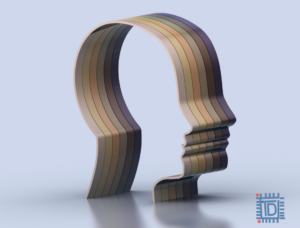What makes humans unique? What are the things that differentiate humans from non-humans? Or what is it that makes us human? These are the questions people have been searching for answers to. The following discussion presents a comprehensive answer to them:
1. Our ability to imagine abstract things
One of the most important features unique to humans is our imagination. The ability to abstract concepts is what strengthens our imagination and enables us to think about ideas that may not exist with the same clarity as the real ones. Our ability to define and comprehend concepts about concepts (abstraction) makes up the major part of our internal library of knowledge. For example, the concepts of math exist only as ideas in our imagination.
abstract concepts is what strengthens our imagination and enables us to think about ideas that may not exist with the same clarity as the real ones. Our ability to define and comprehend concepts about concepts (abstraction) makes up the major part of our internal library of knowledge. For example, the concepts of math exist only as ideas in our imagination.
Like other vital functions of the human brain, imagination is also a vital function. Imagination enables our mind to generate and work with ideas that are not tied to the physical world. We can identify, deal and remember these ideas in the same way as we do our real life experiences. We are the only animal who has the strong ability to intentionally control this skill. Abstraction is one of the benefits of our ability to generate new knowledge through imagination. We tend to generate ideas about ideas, define new terms, and continue to grow our library of ideas even without external intervention.
We have the ability to guide our imagination with intention through memories and concepts. We can recombine images, music, feelings and concepts in our minds methodically exploring what happened in the past or how it could have happened differently or what could happen in the future.
We have the ability to imagine entirely nonsensical situations as well as very realistic ones. We can learn about undesirable outcomes or find a solution to a longstanding problem. We can scrutinize various angles of a given situation from multiple perspectives to understand how best to navigate a certain social or professional situation. Unlike animals, we drive our actions by much more than just our current physical state and our sensory perception of the moment, and this ability prepares us to deal with challenges of life. Our imagination is a builder of our civilization and somehow a culprit for our conflicted existence.
2. Our Ability to Form Mental Models of Known Patterns
We are wired to make sense of the world around us. We are learning-animals. Human babies learn by identifying patterns in the world that they can use to get things they want. Once we learn to recognize patterns we react to them accordingly, the most primitive parts of the human brain handle it automatically. We focus on patterns until we make sense of them & classify them. Our internal library of knowledge is organized as a library of interrelated models. Everything we learn about the world is learned as models
learn by identifying patterns in the world that they can use to get things they want. Once we learn to recognize patterns we react to them accordingly, the most primitive parts of the human brain handle it automatically. We focus on patterns until we make sense of them & classify them. Our internal library of knowledge is organized as a library of interrelated models. Everything we learn about the world is learned as models
Our intuitive ability to translate the world into models is how we are able to put together our powers of learning and imagination into comprehension models. Bridge the gap between our intentions and our ability to act on them independent of instincts, no other animal can make in the historical capital.
There are models, some of which we were born with, others that we learn as babies and yet others that we continue to learn and generate through abstract thinking and reasoning through our entire life are organized into models in our mental landscape.
From an evolutionary standpoint, models are necessary in our lives. They are the tool that allows us to navigate the world without having to calculate complex calculus or solve difficult mathematical equations. We create new models, and we retire models that no longer serve a purpose.
As our models improve over time, so does our competence. Our thinking about the world in terms of models is a uniquely human ability. Animals can recognize and respond to models they’re born with, but they are terrible at learning new ones. Humans on the other hand have an exceptional ability to learn new models and continually get better at using them. This is the reason animals are almost entirely driven by instinct. While we have countless options when it comes to how we comprehend and interact with the world, our experience of life and what our civilization can achieve is limited only by our imagination, imagination and model thinking.
3. Human Language
If we consider our linguistic ability solely, we outpaced the most learners of our primate relatives by orders of magnitude. Our powerful imaginations begged for something like language to organize and share our ideas with others to experience more of those good vibes. Language is a critical development that allowed our ability to invent, operate on and learn from models to flourish to its full potential. Models proceed with language, animals develop models, but they don’t have ability to vocalize or create language.
language to organize and share our ideas with others to experience more of those good vibes. Language is a critical development that allowed our ability to invent, operate on and learn from models to flourish to its full potential. Models proceed with language, animals develop models, but they don’t have ability to vocalize or create language.
Language allows us to manipulate and extend models. We are born with an instinct for associating spoken words with ideas. Our larynx evolved, descended deeper into our throat cavity, providing amazing flexibility in reverberating air and generating precision sounds, that enabled our physiology to vocalize anything we want
4. Human Culture
Even though we resemble animals in many ways, no other animal can claim anything remotely resembling human culture. We live out our lives through customs, traditions and norms that were formed early in our childhood so early, that we can’t pinpoint exactly when and how they first entered our awareness as the way that things are or are supposed to be.
and norms that were formed early in our childhood so early, that we can’t pinpoint exactly when and how they first entered our awareness as the way that things are or are supposed to be.
Most of our ideas about what to do, what not to do, and how to do it come from culture. We absorb ideas through active instructions and passive observation, but most ideas are absorbed by passively observing our social circle and our community, in fact absorbing social ideas is something we are wired to do by nature, and we spend most part of our lives in absorbing ideas.
5. Our Reasoning-Ability
something that enabled humans to travel a long journey of endless growth and development, and that is our ability to reason. We are born with an inborn knowledge – we learn knowledge from culture – we create new knowledge through the process of reasoning. Our Innovative problem-solving abilities helped us survive in difficult and changing environments and enabled us to modify our environments to make them better suited for our needs.
and that is our ability to reason. We are born with an inborn knowledge – we learn knowledge from culture – we create new knowledge through the process of reasoning. Our Innovative problem-solving abilities helped us survive in difficult and changing environments and enabled us to modify our environments to make them better suited for our needs.
We learn and we reason about what we learn, creating new useful knowledge as a result. We attain knowledge that is raw material – then evaluate knowledge by process of reasoning – then reach a conclusion based on that analysis. Reasoning is the act of applying logic to abstract thinking to generate new, often useful knowledge. Reasoning is intentional, it exponentially multiplies the effective value of our already large knowledge reservoir. Using principles of logic and our imagination, we can dig deep mysteries of the universe, so complex problems and overcome obstacles real and imaginary.
When applied correctly, reasoning can help us recognize difficult problems, create novel technologies, and search out interesting ideas. Logical reasoning challenges the ideas generated by our inborn instincts and the ideas absorbed from society. The lessons we learn by employing these qualities are helpful; for effectively solving problems and accomplishing the great things in life.
Finding the answer to the question, “what makes humans different from other animals” highlights our differences with other animals that enable us to compare different aspects of our behavior to them that can give us insights into changing our behavior for the better.
Follow us:
Facebook : Think Different Nation
Instagram : Think Different Nation
Twitter : @TDN_Podcast
